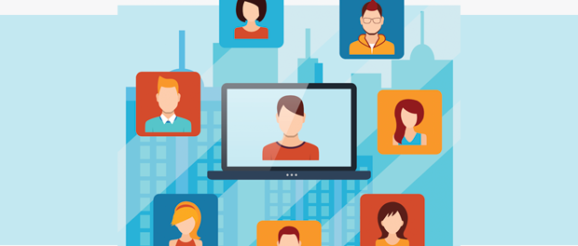How we’re turning disruption into innovation at UAB

The past several weeks haven’t been easy for any organization. At the University of Alabama at Birmingham (UAB), we’re choosing to view the disruption from the COVID-19 pandemic as an opportunity to supercharge innovation.
When the university moved to limited operations and sent students and faculty home, we dove immediately into the first phase of our action plan: Triage. This is when we assessed the problems and prioritized the most important technology issues.
[ How is the pandemic reshaping digital transformation agendas? Read also: Digital transformation: 5 ways COVID-19 is forcing positive changes. ]
This is also when innovation began bubbling to the surface. In the span of six weeks we were able to launch some incredible initiatives:
Successfully moved 1,000+ classes online
Prior to the pandemic, UAB hosted about 40 percent of its 2,600 classes online. One of the first things we did was ramp up that number to include nearly every class. Today only about 40 classes are not online, and those are individual, typically music classes.
Due to strategic investments in technology over the years, UAB delivered a minimal viable product very close to flawlessly. That’s an achievement on its own, but we’re already looking toward the future and thinking about how we can take learning to the next level.
Helped make WiFi accessible to students statewide
It became apparent during this triage phase that not all UAB students had access to reliable WiFi from their homes. UAB opened up a parking lot on campus where students could use our WiFi if they needed it. We also made this parking lot available to local K-12 students to the delight of the school superintendent.
At the same time, we quickly built a mobile app and website that displays free WiFi locations across Alabama. We partnered with the Alabama community college system to make this available to everyone and asked technology leaders around the state to open their parking lots.
Deployed nationwide symptom-tracking website
Separate from the WiFi projects, UAB deployed a nationwide symptom-tracking website to anticipate where future virus hotspots may be brewing. Everyone came together in a uniquely UAB way to make it happen and happen quickly.
Today, we have more than 60,000 unique people reporting their symptoms. In partnership with the Alabama Department of Public Health, we are working to leverage the Google and Apple API to provide contract tracing for Alabama.
Strategically using AI and chatbots to boost enrollment
Another issue we considered during this phase was the possible drop-off in enrollment for the fall. We are addressing this by deploying a chatbot that uses artificial intelligence to help with students who say they’re attending, but don’t actually come. Our goal is to keep students engaged through the summer.
The role of triaging
A pandemic is a scary time for people and organizations alike, but it can also be a time of great opportunity and innovation.
For us, it started with triaging. By reviewing pressing problems, and prioritizing the key technology issues associated with those challenges, we were able to quickly launch useful inititiaves for our communities.
[ Culture change is the hardest part of digital transformation. Get the eBook: Teaching an elephant to dance. ]
